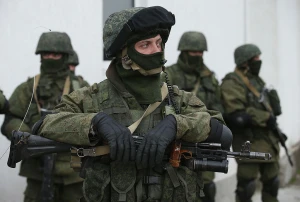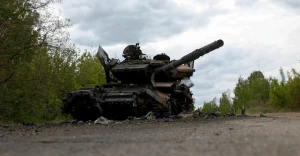
Dictator's election campaign: will Putin become another Lukashenko?
No surprises as to who is expected to win in spring 2024. Russian leader Vladimir Putin cannot lose election, but the West has more than enough reasons to recognize the elections in Russia as illegitimate
In the run-up to the 2024 presidential elections in Russia, the presidential administration, the government, and TV propagandists have maximized their efforts to mobilize support for Kremlin dictator Vladimir Putin, who is seeking the fifth term in office.
Putin's "elections" scheduled for March 17 next year may be the most difficult for the Russian dictator, who is portraying himself as a defender of Russian "sovereignty" and "traditional values." The confrontation with the West and the "denazification" of Ukraine remain the core elements of Putin's election campaign.
It is clear that the Russian Central Election Commission will make the Kremlin leader any result he wants, but how will the United States and the leading EU countries respond to this situation?
Putin flirts with the West
Judging by the behavior of the Kremlin's propaganda machine and what the leader of the terrorist state himself says, Putin's election campaign strategy will be based on positioning him as a defender of the "traditional values" of the Russian population. The Kremlin seeks to present the dictator as a staunch opponent of the "liberal values of the West" that have allegedly led to a "crisis" and "decay" of society in the US and EU.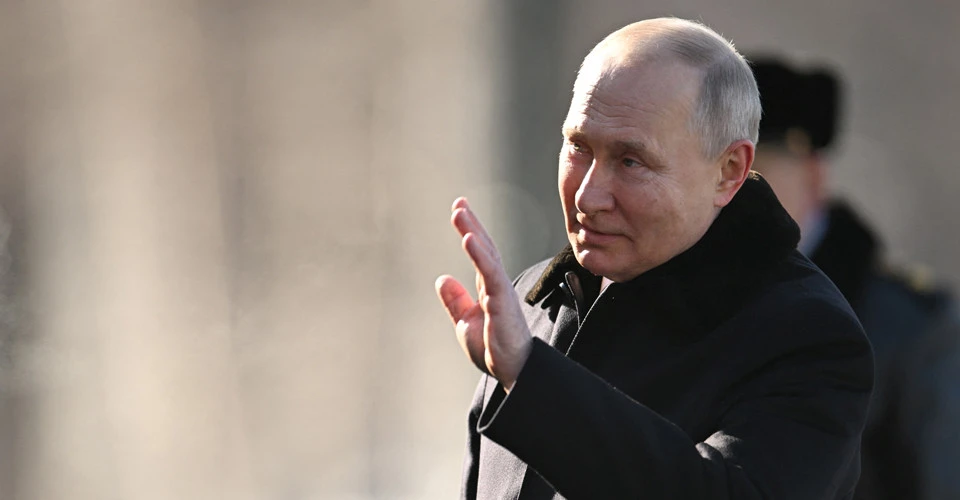
Vladimir Putin demonstratively says that the main goal of Russia's "special operation" is the alleged "denazification" of Ukraine, not a strategic confrontation with NATO countries. It was in this line that his final press conference in 2023 took place. However, the Russian dictator failed to answer the most important questions: when the war with Ukraine will end, and how the authorities intend to respond to the protests of wives of those mobilized in the Russian Federation.
"At the final press conference and on TV, Putin said that he allegedly does not intend to conflict with the West and that Moscow allegedly does not threaten NATO countries. Just a day later, Putin begins to threaten Finland, promising it "problems" because the country joined the North Atlantic Alliance. If we assume that Putin does have a double, then a more emotionally balanced double could have appeared at the press conference, and the real Putin could have appeared at a later date. It is clear that all this is a version, but the very fact of the presence and of doubles raises the question for the West: who exactly do Russians choose?" Vitaliy Bala, head of the Situation Modeling Agency, tells Ukrainian Apostrophe media outlet.
“Traditional values” as Russia’s geopolitical weapon
It is clear that Putin expects to win a controlled election, and the authorities are seeking to give him the maximum score with a high turnout to demonstrate "broad support for his actions" against Ukraine and the West, as well as the loyalty of Russians.
As part of Putin's election campaign, special attention will be paid to the construction of schools and hospitals in the regions as evidence of a certain "social development." The aggression against Ukraine and the deepening conflict with the US and EU will be presented as a key argument for mobilizing loyal voters, who will be lured to the election under the slogan that only Putin can save Russia from the "destructive influence" of the West.
"Most likely, the US and the EU will not recognize the results of the elections in the occupied territories of Ukraine, but it is unlikely that Putin will be treated like Lukashenko, who is not considered the president of Belarus by anyone in the civilized world," Vitaliy Bala adds.
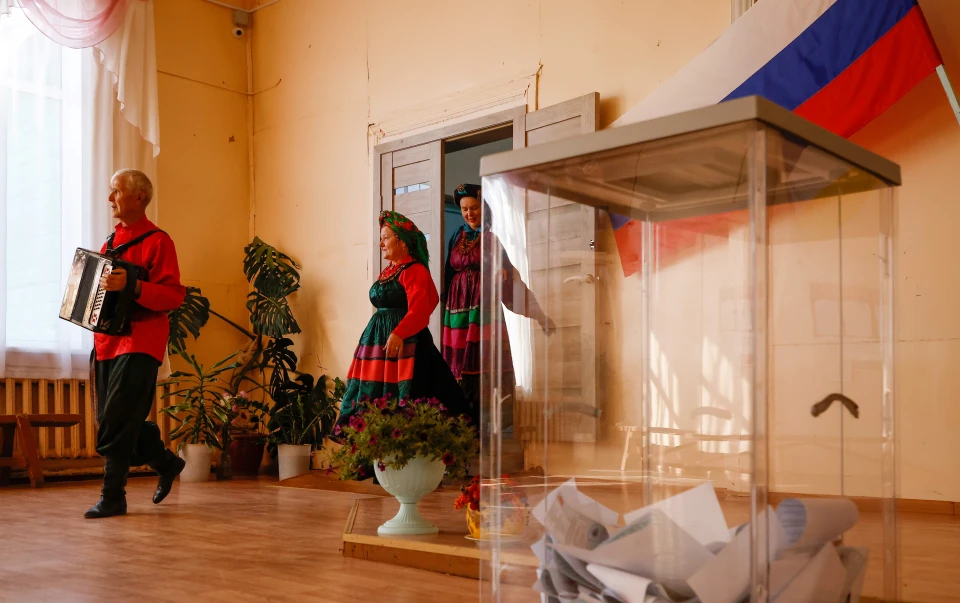
At a meeting of the Valdai Club in October, the Russian dictator declared that he was defending Russian traditions and culture. Then, in February, speaking to the Federal Assembly, he warned lawmakers against the West's desire to "'put an end to Russia for good,'" condemning US and EU policies as harmful to family values.
Then the Russian Orthodox Church picked up the baton, calling to restrict abortions. The emphasis on traditional values has led to the fact that government officials have begun to question whether the Russian women should pursue higher education and careers. They claim that improving the demographic situation is more important for the country.
In the summer, the head of the Russian Ministry of Health, Mikhail Murashko, spoke in the same vein, criticizing in the tendency for women to consider having children only after they have realized their potential at work. Then, in late November, Vladimir Putin himself, de facto already in the midst of his election campaign, became nostalgic for the days when Russian women used to have more children.
Will the West recognize Putin’s legitimacy?
According to the independent Moscow-based Levada Center, Putin's support level jumped to 85% in November. For comparison, before the full-scale invasion of Ukraine, it was around 69%. Previously, such indicators of the dictator's popularity were recorded in 2014-2017 amid the occupation of Crimea and the outbreak of the war in Donbas.
"No matter what Putin says, it is important to understand that he has only one goal: to stay in power to the last. He can threaten NATO or, on the contrary, appear to be "peaceful" so that the US and EU agree to his "elections" and continue to talk to Moscow, albeit through intermediaries. Now the tactical goal is to hold the "elections" and then wait for the results of the US presidential race, after which, as Putin expects, he will negotiate with Trump," says political strategist Oleksiy Holobutskiy.
The education system is being put on a military track. Basic military training is being introduced in schools, as well as a new history "textbook" co-authored by Putin's aide Vladimir Medinsky. It is clear that the "textbook" justifies aggression against Ukraine, fosters nostalgia for the USSR, condemns its collapse, and actively criticizes the West.
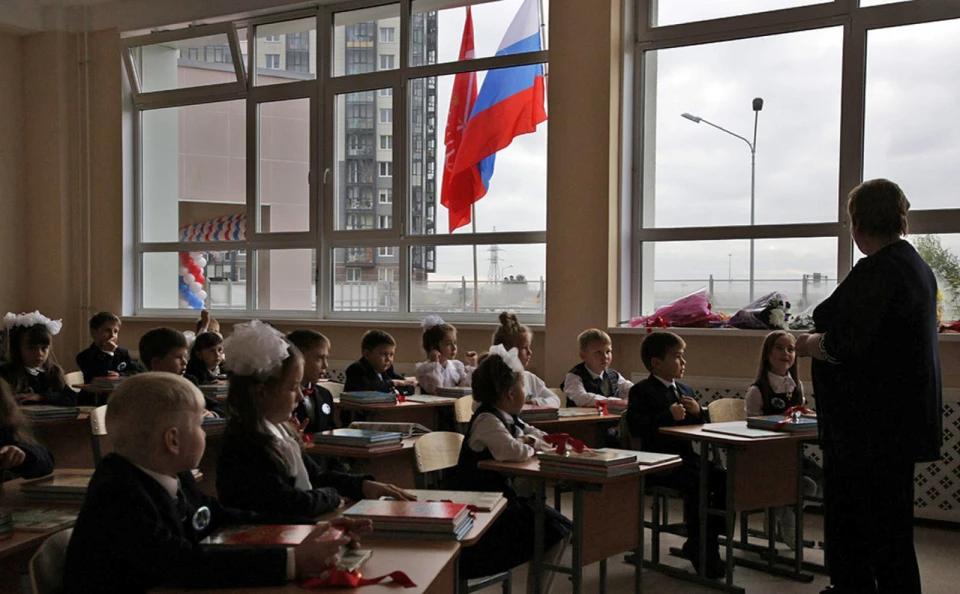
Society, starting with its youngest members, is being taught that Russia has allegedly "always" confronted the West and that the confrontation will continue in the future. In this way, the Kremlin is creating a propaganda and political platform in case the West criticizes and questions the results of Putin's "election."
"The US and the EU’s stance will become clearer by March 2024, but the grounds for recognizing the elections as illegitimate are: aggression against Ukraine, occupied territories where the "elections" are held, lack of opposition and real political competition, etc. But whether Washington, Paris, or Berlin will risk not recognizing Putin's re-election at all remains an open question," international political scientist Volodymyr Volya summarized in an interview with Apostrophe.
- News










